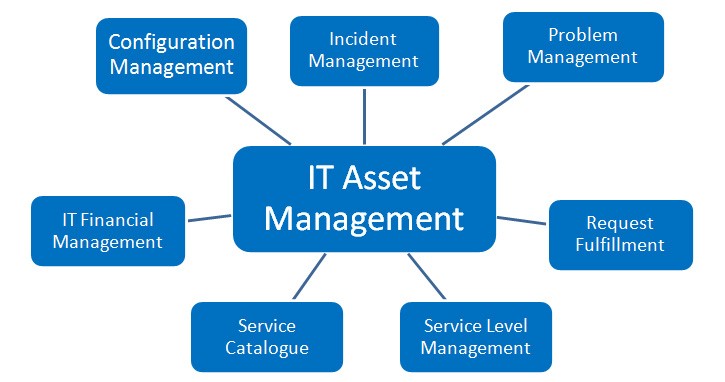Why asset management
Post on: 16 Март, 2015 No Comment

5 minute read
Could you outline your career so far? What made you choose to work in asset management?
I’ve been in asset management for 25 years. I joined the City as a trainee fund manager for an insurance company, then went to an investment bank’s asset management arm, where I ended up becoming head of UK equities. Next, I became overall head of equities at another asset management firm. And at the end of last year I joined Threadneedle as Chief Investment Officer.
When I was at university, I didn’t really know what I wanted to do afterwards. My degree was in economics and philosophy, and I always thought that I might work in something economics-related. When I graduated in 1986, the Big Bang deregulation of the City was taking place, which was very exciting. At that point there was a lot of focus on the City in the media, and I thought it seemed like a stimulating and challenging environment in which to work. I didn’t specifically target asset management, but happened to get a job here. I’ve been extraordinarily grateful ever since that I did, because I think I have the best job in the world.
What do you enjoy about working in asset management?
There are three things that make this job special.
Firstly, we’re at the epicentre of global events; from politics to extreme weather, anything that affects markets and their behaviour is relevant to our work. And no two days are the same because every day something’s happening which influences the way people invest.
The second thing I’d highlight is that you get to interact with very interesting people. I’ve spent much of my career working in the UK stock markets, which means I’ve met, and in some cases formed professional relationships with, the chief executives of most of the leading companies in this country, from Lord Hanson of Hanson plc, to Sir Terry Leahy of Tesco.
The third thing is that in this job you’re in the privileged position of being able to act on your own views about the world through the portfolios of investments you manage.
Why should students considering a career in finance look at asset management as well as investment banking?
In investment banking, whether you’re in corporate finance, fixed income or equity sales, you’re generally advising clients and trying to persuade them to do things. But you can’t make and implement decisions yourself. However, as a fund manager, you manage a portfolio as an investor. If you think company X is going down and company Y is going up, you can take action on that view (subject to what your colleagues think and some other constraints). We don’t have to persuade people to do things, we do things ourselves. We are investors rather than advisors. And I think this is the crucial and fundamental difference that, in my view, makes asset management a more appealing option.
In addition, I think a career here is potentially more interesting. At an investment bank, you might become a specialist in an area that is relatively small in the context of everything else that’s going on in the markets, for example, you might become your bank’s European food retail expert. In asset management, you might also work closely with companies in this sector but you’ll still need to follow closely what’s going on in the rest of the global economy, and so your career will never become too limited to one area.
Asset management also offers a less volatile, more long-term career path than investment banking.
Why should students consider Threadneedle in particular?
We’re very good at what we do. This business is all about generating return for your clients and we have done so more successfully than our competitors over the long term across the vast bulk of the assets that we manage.
The working environment here is not political — everyone’s just working together to try to do a good job for our clients. Our hierarchy is very flat, and our junior people get closely involved in our investment process.

Graduate recruits join as trainee analysts. They’re given a particular area to research, which is quite small at first — for example, a particular industry sector, country or financial product — and they’re closely supervised by more experienced colleagues. But from the beginning they’re given responsibility for coming up with investment ideas in their area for the fund managers to implement. We teach them how to analyse companies, market patterns, and particular kinds of product. Over time, they become more experienced, get more responsibility and, after five to seven years, will become fund managers themselves.
I think any graduate joining Threadneedle would be excited about what they could achieve here.
How do asset management firms work with investment banks?
Investment banks (known as the sell-side) try to persuade us (known as the buy-side) to purchase equities and fixed income products through them. Salespeople at banks talk to our fund managers, expressing views about what they think is going on at particular companies and in particular markets. If we decide to buy or sell something, traders at investment banks will process that transaction for us.
How did asset management firms fare in comparison with investment banks during the financial crisis?
Our revenues are linked to markets, just like those of investment banks, and our profits fell as investment banks’ revenues were falling. But we were less severely affected because we hadn’t used borrowed money to maximise our returns, and hadn’t built up capacity in market areas that disappeared overnight, like the CDO market or the asset-backed securities market. So while many investment banks had to downsize very rapidly, we didn’t have to.
Since the financial crisis, I think asset management companies have had a stronger position in the buy-side/sell-side relationship. Because we’ve been proven to have very stable revenue streams, the status of asset management companies has risen in recent years.
Is there anything else that you think students should know about asset management?
One of the things that is often overlooked about asset management is that we fulfill a social purpose. The world needs to save for its future, and we as individuals need to save for our retirements and to protect ourselves in other ways. We help people to do so by providing the necessary investment products, and ensuring that they perform.














